- Home
- Trevor Hoyle
Last Gasp Page 18
Last Gasp Read online
Page 18
Hunger sharpened his senses while meditation relaxed his mind. The outer world faded away and in a state of semitrance his cosmic awareness unfolded like a flower in the spring rain.
Listening.
Watching.
Touching.
Tasting.
Experiencing.
His senses reached out like the soft white shoots of a plant into rich moist earth. His consciousness expanded until it transcended time and space. His inner eye conjured up the blue-white bowling ball swinging through the void. Only it was not as he himself had once seen it, clear and sparkling. Now it was wreathed in a gray miasma. The atmosphere was a dense impenetrable blanket. The once-sweet rainwater that flooded from the skies scorched the flesh. The oceans moved sluggishly, clogged with dying plants and fish. Every breath was a painful gasp.
This was how it would be. This was how it must be.
His inner eye probed the future and saw the horror. It couldn’t be changed. Had he not been taught to give way to the laws of nature operating inside himself in order to release his true self from that bondage? What was outward reality, after all, but a sham, a deceit, a trick of the imperfect senses? The planet was dying. What matter to him?
... hoping for nothing desiring nothing ...
Surely that was the one true path? But what about his pilgrimage and its ultimate purpose? Was he now to foresake it?
Bhumi Bhap didn’t know. He had failed before he had begun. He felt utter despair.
The crude wooden walls of the shack swam back into focus. The oil lamp, turned low, burned with a smoky orange light, making a steady dim circle on the sandy floor. In this circle, at his feet, he saw the scorpion.
It was the color of pale amber, its translucent body relaxed, not curled in the stinging position. The claws twitched and inched forward across the sandy floor toward him, wavering slightly as if preparing for a courtship dance. Possibly it sensed the heat of his body.
Bhumi Bhap waited, motionless, his senses quiescent.
One of the creature’s claws touched the big toe of his left foot and immediately stopped. After a moment the claw opened and tentatively gripped his toe, as if testing it. The creature had to decide between three options. Food. Friend. Enemy.
Which was it to be?
Bhumi Bhap lost sight of the scorpion as it crawled beneath his bent right knee. He was being tickled on the sole of his left foot. The claws appeared, like blind insects, over the curve of his thigh. Up it came, laboring to gain a purchase, its segmented body gleaming faintly in the lamplight.
His right hand was spread on the crown of his knee and the scorpion used his fingers as the rungs of a ladder to haul itself onto the back of his hand. There it rested, claws raised in the attitude of a boxer wearing outsize gloves, prepared to defend itself.
Bhumi Bhap could hardly feel it, it was so light. Just a few grams on delicate jointed legs—yet the bulbous gland with its pointed sting at the end of the coiled tail contained enough venom to kill a creature several thousand times its size and weight, including a man.
A mosquito whined in the stillness. The oil lamp unfurled its dark ribbon of smoke to a blackened spot on the ceiling. Unlike a Christian or a muslim, Bhumi Bhap could not pray to God or Allah for deliverance from this peril; his faith admitted of no supreme deity. Instead there was the impersonal concept of a vast oceanic experience with which selfhood could be merged. Brahman, or the ultimate reality, could be attained by any method the disciple wished, providing he had dispensed with ego. And without ego there could be no fear of death of self, since that imposter no longer existed.
The scorpion (Bhumi Bhap knew) was a test. Had he felt fear he would have failed. It would have shown that his ego, his identity, was intact.
But he felt no fear.
His ego was dead.
He had passed the test A-OK.
He raised his hand and brought the scorpion level with his eyes and looked at it. The creature was alerted. Its tail sprung up and arched stiffly over its head, the sting extended and poised to attack. Slowly and carefully Bhumi Bhap placed his hand flat on the floor. The sting retracted and the tail coiled back on itself and the scorpion crawled off into the darkness.
From outside came a low rhythmic chanting. Over and over the chant was repeated until the night air vibrated and seemed to solidify around him.
With the index finger of his left hand he traced the sacred symbol in the circle of lamplight at his feet. Bhumi Bhap knew what had to be done, and knew that he had the strength and the will to do it.
He would become death, the shatterer of worlds ...
“You think he’s worried about something?” Chase scooped up a forkful of mashed potatoes and peas. “The letter doesn’t actually say so.”
“How could it?” Cheryl said impatiently, chewing on a piece of steak and swallowing it. “They’d never have let it through. Besides, it would be far too dangerous.” She took a drink of water, ice cubes clinking in the tall glass. “But I know Boris and I know he was trying to tell me something.”
“That was weeks ago, almost three months, and you haven’t heard anything since.”
“That’s what worries me. I wrote back at once—just acknowledging his letter, that’s all—and haven’t heard another word.” She dug into another piece of steak.
They were in the Scripps cafeteria eating a late lunch among tables that bore the debris of several hundred people, now departed. Cleaners moved methodically along the aisles pushing rubber-wheeled trolleys that reminded Chase of stainless-steel coffins.
The scrape and clatter made it difficult to concentrate, though Cheryl seemed not to notice. It was four years since their last meeting. At that time she was still suffering the loss of her father, grief that was churned up with anger because in bland police jargon “Vehicle unknown, Driver unknown” had been responsible for the so-called accident.
Wiping his mouth with a paper napkin, Chase said, “You could be right, but you’ll admit it’s pure conjecture until you hear anything more.”
“What if I don’t hear?”
“Then you don’t. Perhaps he is trying to tell you something, but there’s no way of knowing or finding out.”
Cheryl pushed her plate away and toyed with a dessert spoon. “It really gets to me. This damn world is full of closed doors. You bust through one and, boy, there’s another—locked and barred and plastered with NO ENTRY signs.”
“We all suffer from that,” said Chase with some feeling.
Cheryl raised her eyes. “You too?”
He told her about his meeting with Bill Inchcape at the National Center for Atmospheric Research and of the classified predictions that DELFI was supplying to ASP in Washington.
“What’s ASP?” Cheryl asked.
“One of these cloak-and-dagger organizations at the Pentagon. Advanced Strategic Projects, which is a handy catchall title meaning almost anything. I got the impression that Bill Inchcape was reluctant even to mention it. It isn’t supposed to exist.”
“It’s a new one on me.”
They left the cafeteria and strolled in the sunshine down to the long concrete arm of the pier jutting out into the ocean.
“It’s good to see you again, Gavin,” Cheryl said, taking his arm. “How’s Dan?”
“He’s fine. At the moment he’s exploring the difference between the sexes.”
“At six years old?”
“Well, he’s a late developer.”
Cheryl laughed, squeezing his arm. He imagined her for a moment as a schoolgirl: blond pigtails, wide blue eyes, snub nose, and drenched with freckles. Maybe the American habit for braces was vindicated after all, he thought, in her bright perfect smile. But there were underlying changes he hadn’t seen before, not so much in her physical appearance as in a hardening of her attitude, her old cynicism now edged with despair.
Cheryl’s office was in the glass-walled annex of the marine biology division, set among lawns and shrubs and gravel paths. Much of
her work these days was concerned with evaluation of data for the Marine Life Research Group, whose main function was to record low-frequency fluctuations in the ocean currents. Not only did these affect the growth and distribution of marine life, but their dynamics played an important role in determining the atmospheric climate, particularly in the Pacific Basin.
“Every little bit adds to our picture of the biosphere,” Cheryl said. “I divide my time between the research I’m required to do for Scripps and compiling information on the oxygen deficit.”
She pointed and Chase swiveled in his chair to look at a chart, black-painted words on a glossy white board, which took up most of one wall. It was headed “Oxygen Balance Sheet.” He studied it for several minutes.
He swung back to face her, shaking his head. “It’s going to need something cataclysmic, like the Tokyo Alert on a global scale, to convince people that it’s really going to happen. The trouble is that on the human time scale the process is hardly discernible. It’s just creeping up on us day by day, until one day we reach the point of no return.”
“The creeping pace could turn into a gallop,” Cheryl said. “As our friend over there discovered.”
On the window ledge stood a two-foot-high model of Tyrannosaurus rex, its terrible plastic jaws agape, rows of pointed teeth gleaming in the sunshine.
She was referring to the theory put forward by Drs. Luis and Walter Alvarez that the dinosaurs were wiped out in just a few short years, possibly less than twenty. It had always been assumed that the extinction of such a powerful and dominant species, which had existed for 150 million years, would take many thousands of years, but now it was believed that toward the end of the Cretaceous period, about 65 million years ago, an asteroid several kilometers in diameter had hit the earth and the impact had thrown up a mantle of dust that completely shrouded the planet. Over five or six years the dust had filtered down and the atmosphere gradually became clear again. But during that short time sunlight was prevented from reaching the surface, with the result that photosynthesis was impeded. No photosynthesis, no plant life. So the animals that fed off the plants starved and died, and the animals that fed off those animals starved and died, and so on up the food chain. Within a very short space of time three quarters of the earth’s species had been wiped out.
“But the dinosaurs died of starvation, not oxygen deficiency,” Chase pointed out.
“It isn’t what they died of that’s important,” Cheryl said, “but how quickly it happened. One minute they were there, the next—” She snapped her fingers. “It could happen just as quickly to us, in twenty years, ten, even five.”
“I wonder if that’s how it’s going to be. We go merrily on our way, ignoring the poisoned oceans, the polluted air, the acid rain, the disappearing wildlife, until we wake up one morning gasping for air.”
“We’re balancing on a knife-edge right this minute. The net difference between the production and consumption of oxygen is only one part in ten thousand and we’re burning up millions of tons of oxygen every year, as well as destroying the greenery and marine organisms that produce it. One part in ten thousand,” she repeated ominously. “Precious little to be putting in the bank when we’re already deep in the red.”
Chase mulled this over. “It wouldn’t need much to push us over the edge, would it? A marginal shift in any one of these factors on your balance sheet would be enough, by accident or design.”
“By design?” Cheryl frowned at him. “What do you mean?”
“What do you know about dioxin?”
“By-product in the manufacture of 2,4,5-T. The Environmental Protection Agency banned it years ago.”
“It seems not everyone’s obeying the ban. I met a doctor in Colorado last week, Dr. Ruth Patton, who’s investigating several cases of cloracne. Only one thing causes cloracne as far as I know, and that’s dioxin poisoning.”
“Has she found the source?”
“Dr. Patton thinks some of the local farmers are using up old stocks of 2,4,5-T, but I don’t agree. It’s the wrong type of herbicide for the grasslands in that area.”
Cheryl was leaning forward, elbows propped on the desk, watching him narrowly as a detective might watch a slippery customer. She said slowly, “Maybe I’m dumb, but I’m not following this. What has dioxin poisoning got to do with somebody deliberately tampering with the biosphere? That’s what you were suggesting, isn’t it?”
Chase nodded.
“Sorry, I don’t see the connection.”
“The connection is simple. If Dr. Patton’s diagnosis is correct it means that someone is either manufacturing 2,4,5-T or using it in the area. Suppose the application is military? There are experimental missile installations near Denver, so that’s a feasible assumption—”
“If somewhat unlikely.”
“Why? The military have used it before to defoliate jungles; why couldn’t they be using it now for some other purpose?”
Cheryl stood up and went over to the window. The backlight made a translucent cocoon of her blouse so that her breasts were solidly defined. She wasn’t wearing a bra, Chase noted, and her figure was still firm at thirty-one.
“But it would be madness,” she said quietly, as the idea blossomed and took shape in her mind. “I mean, where’s the advantage? It would be committing global suicide.”
“That’s what they said about the H-bomb, but it didn’t stop the superpowers stockpiling enough nukes to kill every man, woman, and child on the planet fifty times over. This could be the new strategy— using the environment as a potential weapon. It’s the threat that counts, remember, not the actual use.”
Cheryl was staring at him now. “How long have you been thinking this?”
“Only since I talked to Ruth Patton a few days ago.”
“Could anybody be that stupid?” Cheryl said, but it was a question to which she already knew the answer. If it was technically possible you could be damn sure that somebody would suggest it, want to try it. “What are you doing?” Chase said.
Cheryl was pressing buttons. She moistened her lips, about to answer him, but then the connection was made and she spoke into the receiver.
“Request from Dr. Detrick, Marine Life Research Group.” She waited a moment, listening, her expression stubborn and preoccupied. “I’d like a list of companies that fit the following indices. Suppliers of herbicides to any of the U.S. armed forces within the last ten years. Companies with current contracts with the Defense Department. Chemical companies with the capability of manufacturing chloraphenoxy acid herbicides. Send a print-out to my office by messenger. Thank you.”
“Process of elimination?”
“There can’t be more than four or five companies to which all those apply.”
“If the data are in your computer to begin with.” Chase said, “That’s a big ‘if.’”
Cheryl disagreed. “None of that information need be classified. Any industrial yearbook will tell you which companies have Department of Defense contracts.” She looked at her watch. “Shouldn’t take more than fifteen minutes.”
Chase studied her, seeing Theo’s determination in the set of her jaw and those intense blue eyes. She hadn’t altered all that much since he first met her in Geneva. She still wore her fair hair short, though not as close-cropped. And as he had seen, her figure was still good and firm, more mature of course but avoiding the dangers of laxness and overindulgence. He wondered whether he had aged so well; Americans seemed to work at it more.
He said, “All right, Sherlock, let’s take it a stage further. Let’s say we have the names of the companies. What then?”
“Simple. We find out which company is breaking the EPA regulations by continuing to manufacture 2,4,5-T. And, more important, why.”
“I don’t see anything simple about it,” Chase said, unsure whether to be irritated or amused by her feminine directness and—to him— naiveté.
A uniformed messenger arrived with the printout, which at first glance appeared t
o contain a lot of white space, and when Cheryl swiveled it around with outspread fingers Chase saw a single line of type:
jeg chemical corp inc bakersfield calif
“There we go,” Cheryl said, smiling sweetly, with a suspicious lack of guile. “I told you it was simple.”
About midmorning the heat had started to congeal over Washington and by midday the air was dense and sultry, threatening to thunderstorm. In his fourth-story office in the southwest wing of the Pentagon, Thomas Lebasse had the distinct impression that the weather bore him a personal grudge. Even with the air conditioning and sustained by iced lemon tea, Lebasse was dogged by a dull nagging headache that made every thought a wearisome effort.
His doctor had warned him what to expect, so he was hardly surprised. Fatigue. Nausea. Lack of concentration. Deteriorating motor function. It was all happening just as predicted: the long slow slide into death, with the world growing dimmer as the cancer devoured him alive.
Resolutely he pushed the nightmare away. Move on, you old bastard, he ordered himself. Don’t dwell on it. Just keep going.
Answering a buzz on the intercom, Lebasse listened to his senior aide, David Markham, who told him of a call on his private line while he’d been in conference with the budget steering committee. Lebasse sat forward in his red leather wing chair, the pain and fear momentarily forgotten. “Did the caller leave a name, Dave?”
“No, sir. Said he’d call back later.”
“The caller was male?”
“Yes, sir. From a phone booth, I think.”
He’d been expecting Gene Lucas to call any day now. If DEPARTMENT STORE really was as monstrously unthinkable as he suspected, Lucas was the man to confirm it.
If he achieved nothing else in the short time left to him, the secretary of defense had pledged his conscience to stop that evil scheme before it got started. By comparison, chemical warfare was positively humane.
He buzzed his secretary and told her he was going to lunch at his desk. Would she bring him a sandwich, corned beef and pickle on rye, a glass of milk, and a cream doughnut. He’d given up counting calories. Not much point. And anyway over recent months he’d noticed that no matter what he ate, and in whatever quantity, he continued to lose weight. Only this morning he’d pulled his belt in another notch.

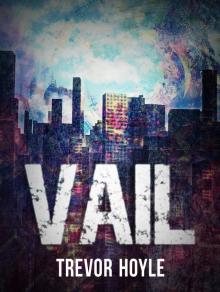 Vail
Vail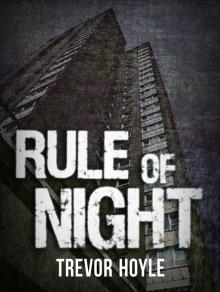 Rule of Night
Rule of Night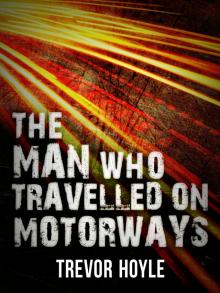 The Man Who Travelled on Motorways
The Man Who Travelled on Motorways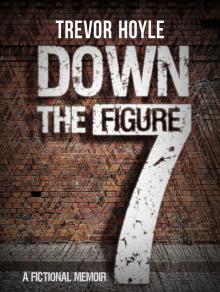 Down the Figure 7
Down the Figure 7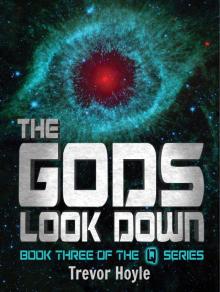 The Gods Look Down
The Gods Look Down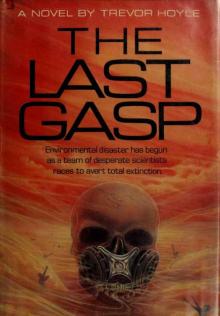 Last Gasp
Last Gasp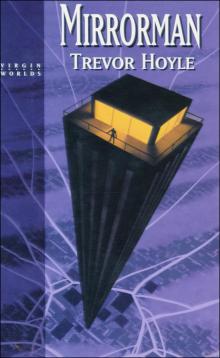 Mirrorman
Mirrorman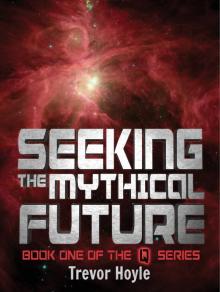 Seeking the Mythical Future
Seeking the Mythical Future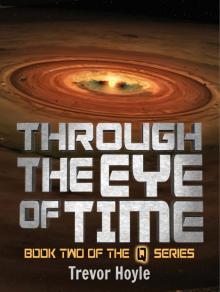 Through the Eye of Time
Through the Eye of Time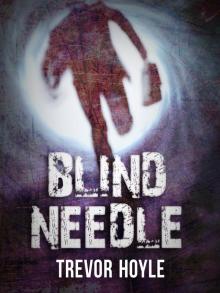 Blind Needle
Blind Needle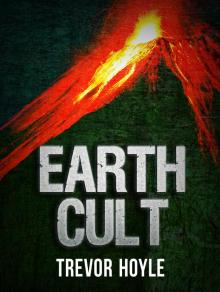 Earth Cult
Earth Cult